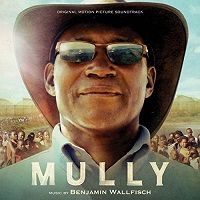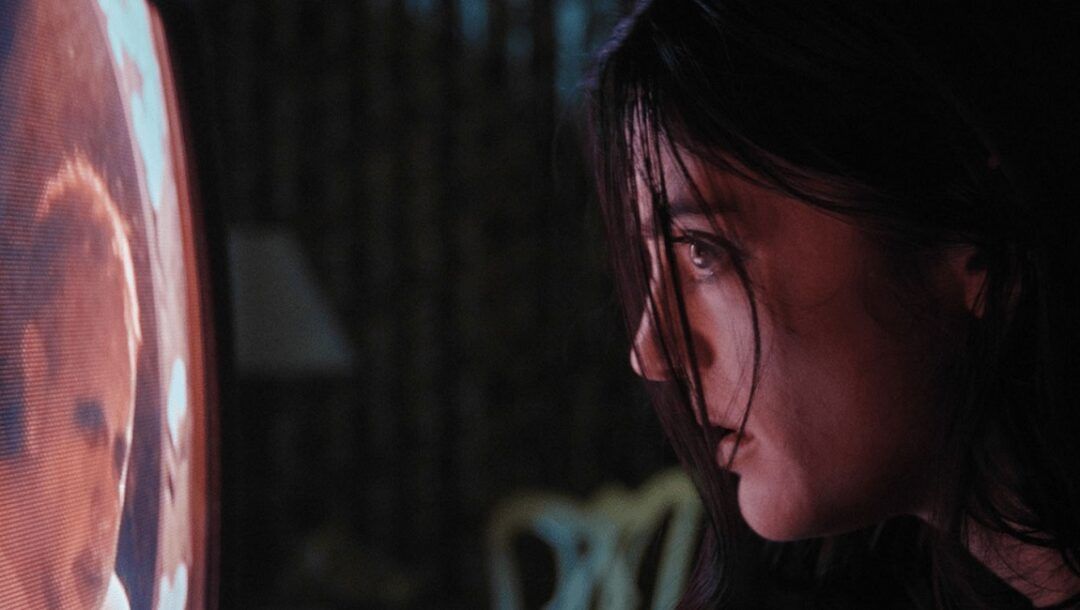How Valerie Faris and Jonathan Dayton HAVE DISCOVERED to Collaborate Over 40 Years
People always wish to know how Valerie Faris and Jonathan Dayton, the longtime collaborators in charge of hit indie films just like the Oscar-winning Little Miss Sunshine, divvy up the task on the set. For example, does Faris direct the actors while Dayton specializes in the camera movements? But as in every other areas of their life — their marriage, their role as parents — there’s no clear division, even though they’re discussing it.
“I usually feel like this can be a very unsatisfying answer,” Faris begins, “but we do really trade off roles on a regular basis.”
As though on cue, Dayton chimes in: “It is commonly that it’s very organic. Among us will feel just like, ‘Oh, I understand how to do that.’ Or, ‘Personally i think very passionate concerning this — i want to [handle it].’ ” He laughs. “It’s a numbers game — [with two people] we get double the opportunity to have the proper answer.”
The Everly Brothers: 12 Essential Tracks
Muhammad Ali: 4 Ways He Changed America
It’s no real surprise they practically finish one another’s sentences. Meeting at UCLA in 1979 and starting a specialist relationship soon after, these were initially drawn to the thought of creating together. Sure, there have been brief flirtations with the thought of dating, but they centered on work — first on music videos, commercials and television, then finally movies. But, eventually, they couldn’t deny their feelings for just one another, marrying in 1988.
“We worried that people would screw up our work relationship if we met up as a couple of,” Dayton admits. “We were both in other relationships for a long time, and finally, we were both single and just venturing out and doing things together. It had been just fun, also it felt super easy and natural.”
Faris adds, with a chuckle, “I did so have friends telling me, ‘It’s a bad idea for you personally guys up to now.’ ”
Instead, their marriage and the household they’ve raised — they will have three kids within their twenties, two of these twins — are area of the artistic journey they’ve gone on together. “Because we interact, we’re type of growing together,” she says. “That has been something really felt to me about getting romantically involved. I thought, ‘I wish to have the ability to constantly change throughout my entire life, and learn new things, and also have new adventures.’ I felt like easily had a partner who was simply going to proceed through those adventures with me, that has been the ideal thing for me personally. I didn’t desire to be leading another life from my partner, and I needed somebody who was ready to grow and change over time.”
You can make the argument that Faris and Dayton’s career has been an adventure through a few of the most indelible trends in popular culture during the last 40 years. From directing the influential mid-1980s MTV program The LEADING EDGE to helming videos for the largest alt-rock bands of the Nineties (including R.E.M., Smashing Pumpkins, and Red Hot Chili Peppers) — to state nothing of these memorable commercial campaigns for famous brands Volkswagen and the NBA (their 1999 commercial for the Volkswagen Cabrio, titled “Milky Way,” featured Nick Drake 1972 song “Pink Moon”, initiating an enormous revival of fascination with the late singer’s music). Even their time directing segments of the groundbreaking sketch series Mr. Show — they’ve consistently helped shape the appearance and feel of mainstream visual art.
Not that it had been always easy, especially in early stages, to get people more comfortable with the idea they were a directing duo. “It can not in favor of the auteur idea of one person steering the complete vision,” Faris says. “Whenever we first began, we were against that a lot. We’d an actor once [on a commercial] tell us, ‘Which of you do I must listen to?’ ”
If they made the leap to film in the first 2000s, after winning multiple Grammys and MTV Moonmen, it wasn’t something they’d necessarily plotted out. “There is a point of which you can tell that the film business really was experiencing music-video directors,” Dayton recalls, “so the opportunities started presenting themselves. Nonetheless it wasn’t until we found scripts that people really liked that it became clear: ‘Oh, yeah, this may be fun.’ ”
That they had a smash right from the gate with Little Miss Sunshine, a zeitgeist-y dysfunctional-family/road-trip saga, that was nominated for Best Picture at the 2007 Academy Awards and won Best Supporting Actor and Best Original Screenplay. Since that time, they’ve continued to explore the intimacy of relationships in off-kilter romantic comedies (Ruby Sparks) and timely explorations of gender politics and sexual freedom (Battle of the Sexes). That intimacy reaches how they speak to actors on set, often inviting their feedback to sort out questions Faris and Dayton have about how exactly far better approach a scene. “Val and I don’t work in lockstep,” Dayton says. “We include two different opinions. There are many times where in fact the person we’re dealing with becomes — not the tie-breaker, nonetheless it’s only a more richer creative discussion.”
However the toughest decisions come when it’s just Faris and Dayton choosing what project they would like to tackle next. “I’d say that’s why we’ve done so few movies,” she says.
“Yeah, that’s exactly it,” Dayton agrees. “This is a really elusive thing to get something that both of us feel like spending several years of our lives doing. There were a lot of projects where among us would like to do it, but we realize from the few times where we’d conceive and start a thing that we didn’t equally love that it’s the worst.”
But if disagreeing on potential films has contributed in their mind being less prolific — and a mutual decision never to join anything longterm that shot beyond their house base of LA while these were raising their kids — being parents has helped provide them with perspective. “It’s about priorities,” Faris says. “We’ve an excellent family — it rewards people enough time for not doing items that we would have already been miserable doing.”
Their children are grown now, nonetheless it will need to have been hard to be young parents while simultaneously attempting to launch a video-making career. The long, exhausting shoots drained them, however they were lucky. “We’d an unbelievable live-in nanny,” Faris says. “She had been 59 whenever we hired her — she’s from Mexico City, and she lived around for 18 years. We were actually around a whole lot, but she just provided this sort of support and was incredible. It had been really one particular secret weapons that people had.” Jumping in, Dayton says, “If we got a music-video award, it had been always our kids and our live-in nanny [that we thanked].”
One reason Faris and Dayton didn’t desire to differentiate tasks on a project was they never wanted to feel just like any section of a production was his or hers. For them, problem-solving, whether as parents or directors, is a thing that’s best done as a unit. And frequently, their different worlds bleed into each other.
“The matter that happens on a regular basis [at home] is we’ll take up a sentence and we won’t know very well what the other is discussing,” Dayton says, because they laugh. “Are we needs to discuss a project we’re in the center of production on, something regarding one of our children, or are we discussing something you want to do to the home? It’s yet language.”
Needless to say, as close because they are, they acknowledge that the constant barrage of work/life responsibilities could be overwhelming. As Faris puts it, “You’ll end up like, ‘If you desire to look at that cut, it is possible to, but is it possible to put headphones on?’ There are occasions where among us requires a break from work. Finding time and energy to ourselves is definitely one of the primary challenges, especially during Covid. I bet more couples probably know very well what life has been like for all of us for days gone by many decades.”
They chuckle, as she adds, “Covid for 30 years — it’s similar to that [for us].”
Because they do often through the conversation, this close inspection of these relationship makes them laugh — it’s the warm sound of two different people engaged in a life project they treasure.
“We will have people say, ‘I don’t understand how you guys take action. I possibly could never use my spouse,’ ” Faris says. “It’s this type of funny thing to us because, no real matter what, you have to interact whether you’re raising a family group or creating a house or simply navigating your careers together. Personally i think enjoy it’s this advantage to have experienced the business enterprise problem-solving and creating together whenever we need to face other challenges.”
Maybe it’s since they began directing music videos, but talking to Valerie Faris and Jonathan Dayton, it’s hard never to think about them as a band, the sum mightier compared to the individual players. But, still, band members do solo projects. Have they ever been tempted?
“It wouldn’t be as fun,” he says. “I cannot let you know just how many times I find myself on the set or focusing on something, and I realize, ‘Oh my god, that is a lot more fun [with her].’ Or even better, [during] an extremely difficult situation, [I think], ‘This might be impossible easily didn’t have this person close to me that I like and provides me strength to endure something.’ ”
Even through the pandemic, Faris and Dayton remain busy, with a shared eye on tackling topics that talk with them. Because of their next project, the couple reveals they’re focusing on a fresh documentary series that explores the planet of sexuality, relationships, and the erotic imagination. Once more, it’s the close connection between individuals who sparks their creative impulses.
Each one of these years later, it’s obvious Faris was smart to ignore her friends who warned her about dating her directing partner. If anything, they find their art its sort of aphrodisiac. “Personally i think enjoy it’s inherently sort of an enchanting process,” Dayton says. And that love results in their work. “In the event that you’re working alone, you will have to renew your love of everything you do,” Faris says. “Because we have been creative partners, there’s this sense of renewal on a regular basis. On a fresh project, we get worked up about the subject that people’re exploring. That keeps the partnership alive.”




Recent Comments